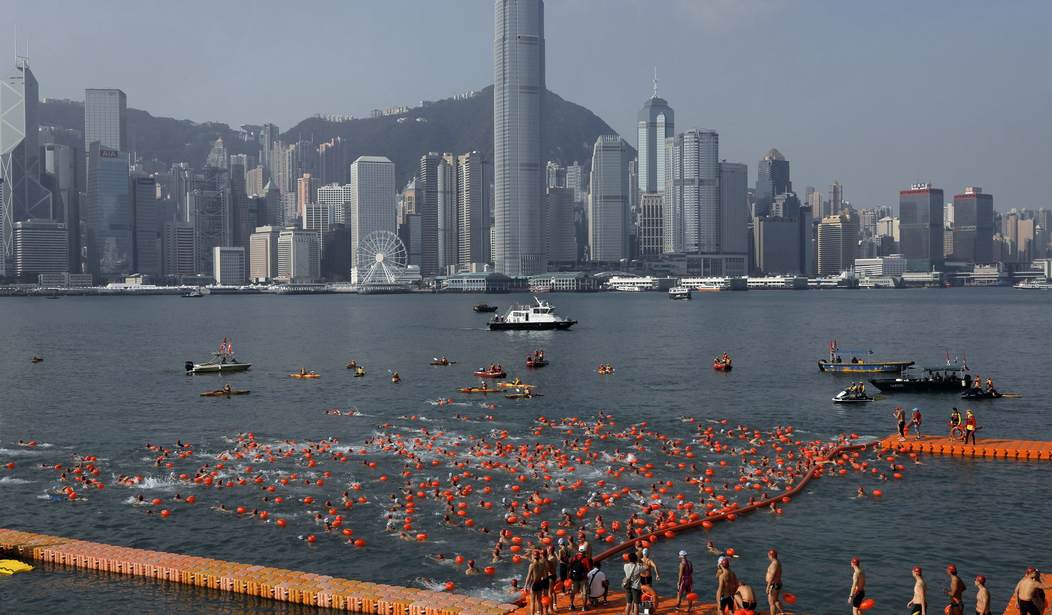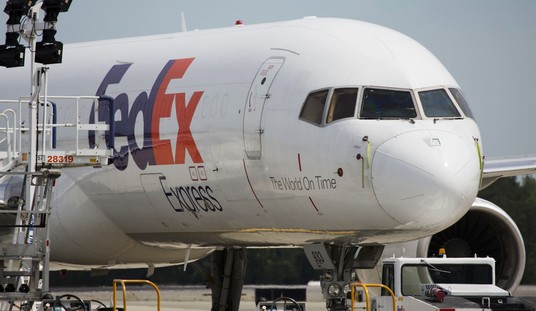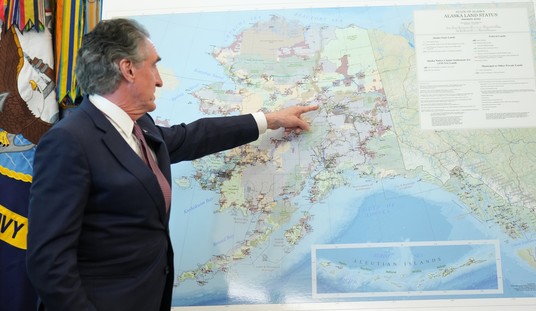Let's look at two cities that have a great deal in common. Both were under British rule for extended periods. Both were, as recently as 1950, backward regions with little or no economic activity; one was a "barren island" whose 600,000 residents had been left stripped by four years of WW2 occupancy by Imperial Japan, while the other was part of a territory administered by Egypt for a period before being taken by Israel in 1967, part of a larger package with no real economy and only 120,000 residents.
Today, one of these cities remains (despite, not because of, being re-absorbed into China) an economic powerhouse, a major global banking center, a place with a fully modern technological society and a high standard of living. The other remains a Third World hell-hole, governed by maniacs, ruled by hatred.
These two cities, of course, are Hong Kong and Gaza.
Issues & Insights has some thoughts on the differences between the two.
While much of the world was moving in the other direction, Hong Kong’s leaders adopted free-market capitalist policies. John Cowperthwaite, financial secretary from 1961 to 1971, was one of the economy’s architects. He had “championed the laissez-faire approach since he arrived in Hong Kong in 1945,” says the Institute for Economic Affairs, and “believed that human progress would best be served by a skeptical stance toward proposed government intervention.”
And:
But in stark contrast to Hong Kong, Gaza has hardly, if at all, developed beyond a Third World existence. Though it is as densely populated as major cities around the world, “it lags far behind” on several measures, including something so basic as the provision of safe drinking water, a failing which ultimately led to a water crisis.
There are two things that are important to note about Gaza's drinking water issue, and they speak eloquently about the reasons behind the failure of Gaza as a society. First, Israel was supplying water and electricity to Gaza — free — and that supply was only shut off after Hamas launched an atrocious attack on Israeli civilians. Second, much of the water supply infrastructure, also put in place by Israel, was torn up by Hamas to make improvised rockets, which they launch at Israel.
A few years ago, Gaza received new water pipelines thanks to foreign aid.
— Visegrád 24 (@visegrad24) October 12, 2023
Hamas dug up the pipelines and turned them into rockets that they later fired at Israel pic.twitter.com/AC1bYOPQBg
With a moment's examination, the sources of the difference between the two cities are apparent. Those sources are free markets, free trade, liberty, and hate. Hong Kong has (or had) the first three. Gaza has only the last.
Hong Kong was returned to mainland Chinese rule in 1997, leading a lot of people to predict its decay and collapse, but in the twenty years since the return, Hong Kong's economy has doubled. The city is one of the few bright spots in China's economy; while most of the Middle Kingdom faces a demographic bust, Hong Kong's population is increasing as young people move there for the bright lights, good times, and great food — although there are signs that the population boom is peaking. It's an expensive place to live, but it's true that people vote with their feet, and people are moving to Hong Kong.
But in Gaza, things couldn't be more different. In 1967, after the Six Days War, Israel offered to return Gaza to Egypt; Egypt refused. So Israel set up the infrastructure, and in 2006, the people of Gaza, given self-determination, proceeded to elect a cadre of monsters; between Hamas and Fatah, another radical revolutionary group, the radicals took 85 percent of the vote.
There is no liberty in Gaza, no banking system to speak of, not even clean water. Hamas is more interested in killing Jews than providing their people with clean water and even a moderately decent economy. The unemployment rate in Gaza is 46 percent, compared to Hong Kong's three percent. 81 percent of Gazans live below the poverty level, compared to Hong Kong's 20 percent. Gazan infant mortality is shocking at 22.7 per 1,000 births, whereas Hong Kong has one of the world's lowest at less than one per 1,000 births.
Yes, it's easy enough to fudge statistics, and the Chinese Communist Party is known for doing so. But the larger trends cannot be so easily obfuscated, and ask yourself, honestly, if you were given the choice of spending some time in Hong Kong or Gaza... Well, that's no choice at all.
Gaza could have been a Middle Eastern Hong Kong — or even a Bahrain. Israel, after all, became a nation in 1948 and literally made their desert bloom; the people of Gaza could have done likewise if only they had moved beyond choosing their civic leaders from the ranks of brutal monsters. Golda Meir once said, "Peace will come when the Arabs will love their children more than they hate us." That, clearly, hasn't happened yet, and it is the children of Gaza who will be suffering for it.
The reasons are clear: Hong Kong was set up on the principles of free markets, free trade, property rights, a solid banking system, and an environment that encouraged international investment. Gaza was set up after a debacle, handed around the neighboring powers like a hot potato, and when given self-determination, elected leaders who ran on hate for their neighbors as a primary platform. What is really concerning is that they seem to be exporting that hate.
In Hong Kong, the citizens can still enjoy the best of times. In Gaza, the people see only the worst of times — but the worst isn't over yet, and they have only themselves to thank for it.














